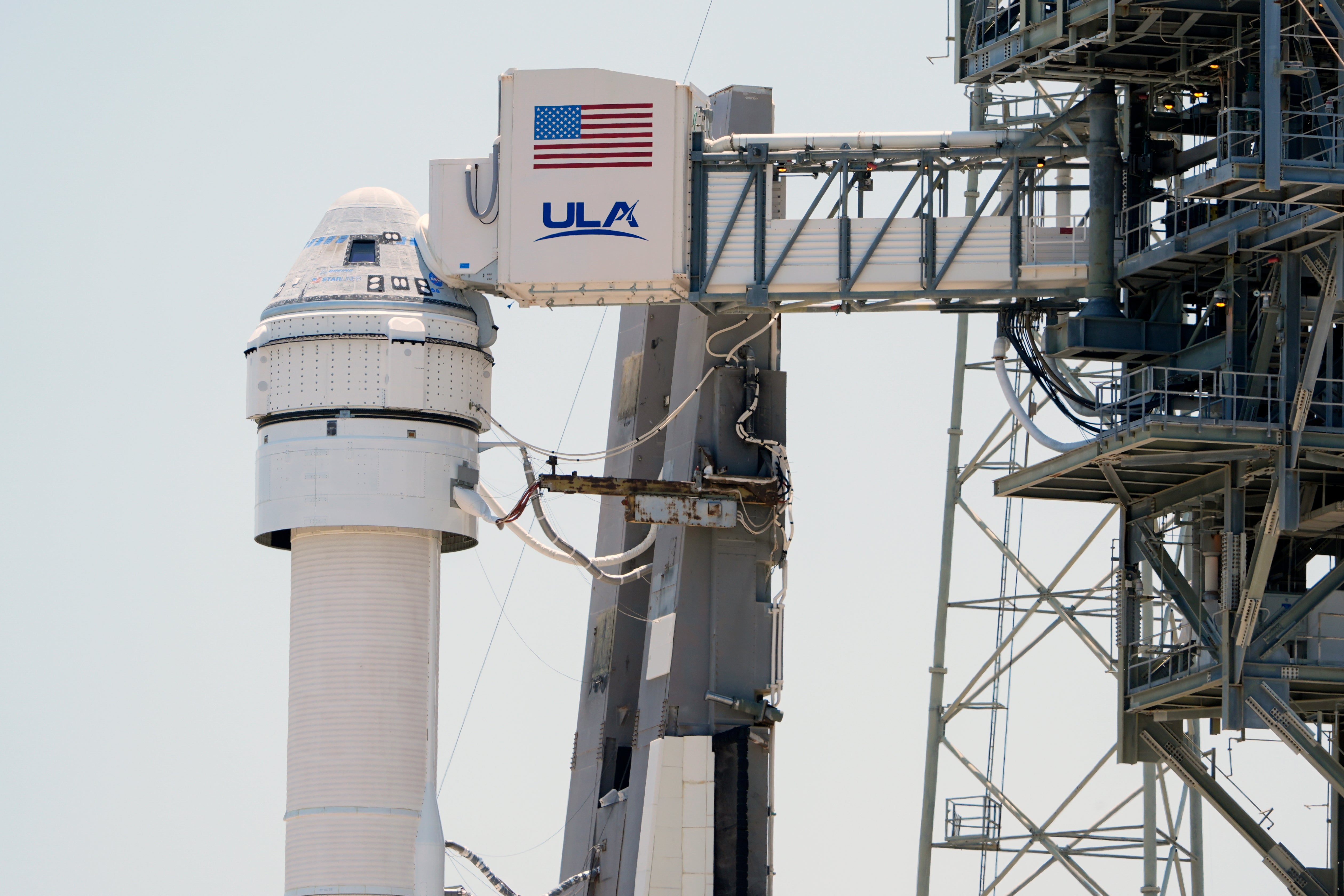Boeing’s first ever crewed space flight faces more delays
More safety checks required for Starliner craft as astronauts remain in quarantine

Your support helps us to tell the story
From reproductive rights to climate change to Big Tech, The Independent is on the ground when the story is developing. Whether it's investigating the financials of Elon Musk's pro-Trump PAC or producing our latest documentary, 'The A Word', which shines a light on the American women fighting for reproductive rights, we know how important it is to parse out the facts from the messaging.
At such a critical moment in US history, we need reporters on the ground. Your donation allows us to keep sending journalists to speak to both sides of the story.
The Independent is trusted by Americans across the entire political spectrum. And unlike many other quality news outlets, we choose not to lock Americans out of our reporting and analysis with paywalls. We believe quality journalism should be available to everyone, paid for by those who can afford it.
Your support makes all the difference.Nasa has once again pushed back the launch of the first crewed flight of a Boeing spacecraft following further issues for the beleaguered aerospace giant.
The US space agency said on Wednesday that the latest delay was a result of a helium leak in the Boeing Starliner’s service module.
The new launch date is 1 June, with back-up dates on 5 June and 6 June – exactly one month after it was originally set to launch.
“Work continues to assess Starliner performance and redundancy following the discovery of a small helium leak in the spacecraft’s service module,” Steve Stich, Manager of Nasa’s Commercial Crew Programme, said in a statement.
“It has been important that we take our time to understand all the complexities of each issue, including the redundant capabilities of the Starliner propulsion system and any implications of our Interim Human Rating Certification.”
Starliner was originally scheduled to lift off on 6 May, however the launch was scrubbed with just two hours left on the countdown.
The issue resulted from a leaky valve on the Atlas V rocket, according to the United Launch Alliance (ULA), which was reportedly causing a “buzzing” noise in the build-up to the attempted flight.
Subsequent inspections of the rocket uncovered additional problems with the helium tanks, resulting in further delays.
Astronauts Suni Williams and Butch Wilmore have remained in quarantine since the failed first attempt and will remain there until the next proposed launch date.
The setback comes amid a period of crisis for Boeing that saw part of its plane fleet grounded due to safety concerns raised by whistleblowers and high-profile mid-air incidents.
Nasa will conduct another Flight Readiness Review ahead of the next attempted Starliner launch from Cape Canaveral in Florida.
“It has been important that we take our time to understand all the complexities of each issue,” said Mr Stich.
“We will launch Butch and Suni on this test mission after the entire community has reviewed the team’s progress and flight rationale.”
Join our commenting forum
Join thought-provoking conversations, follow other Independent readers and see their replies
Comments